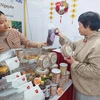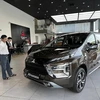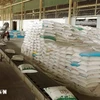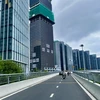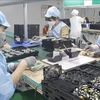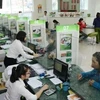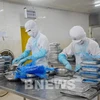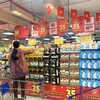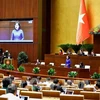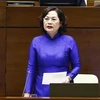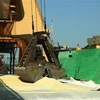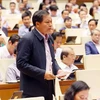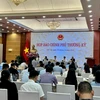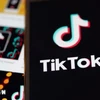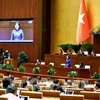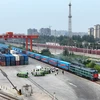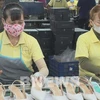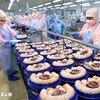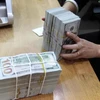Fish farmers, retailers and processers that operate in the tra and basa fish (pangasius) industry got together on August 5 to discuss the world’s first-ever draft on standards for pangasius farming.
The two-day workshop was also attended by experts from the World Wildlife Fund’s Pangasius Aquaculture Dialogue group (PAD), who have worked with local people to help draw up the guidelines.
Work on the standards started in 2007 at the WWF initiative. Since then they have collected opinions from every party involved in the pangasius farming industry with the aim of introducing internationally accepted standards that both protect the environment and benefit society.
The standards will be applied to two types of fish raised in Vietnam from 2011: the tra fish (pangasianodon hypophthalmus) and the basa (pangasius bocourti).
The regulations are expected to address both environmental and social issues arising from fish farming, from legal compliance to the use of land and water, water pollution, the management of feed and chemicals, safety and the health of pangasius farmers.
Hundreds of Vietnamese farmers, mostly small operations, have joined in the formulation of the draft standards, which are being developed in an open and transparent manner that is in line with the guidelines issued by the International Social and Environmental Accreditation and Labelling Alliance (ISEAL).
Flavio Corsin, a WWF Vietnam Senior Aquaculture Advisor, underlined the importance of the standards as he said “the world demand for pangasius is rising fast and Vietnam is one of the world’s major suppliers.”
According to the Vietnamese Association of Seafood Exporters and Processors (VASEP), farmed pangasius in Vietnam leapt to 1.1 million tonnes last year from 400,000 tonnes in 2005, earning the country 1.4 billion USD in revenue.
The WWF has so far organised eight similar seminars, to gather opinions from over 2,000 people on how to formulate farming standards for 12 types of seafood./.
The two-day workshop was also attended by experts from the World Wildlife Fund’s Pangasius Aquaculture Dialogue group (PAD), who have worked with local people to help draw up the guidelines.
Work on the standards started in 2007 at the WWF initiative. Since then they have collected opinions from every party involved in the pangasius farming industry with the aim of introducing internationally accepted standards that both protect the environment and benefit society.
The standards will be applied to two types of fish raised in Vietnam from 2011: the tra fish (pangasianodon hypophthalmus) and the basa (pangasius bocourti).
The regulations are expected to address both environmental and social issues arising from fish farming, from legal compliance to the use of land and water, water pollution, the management of feed and chemicals, safety and the health of pangasius farmers.
Hundreds of Vietnamese farmers, mostly small operations, have joined in the formulation of the draft standards, which are being developed in an open and transparent manner that is in line with the guidelines issued by the International Social and Environmental Accreditation and Labelling Alliance (ISEAL).
Flavio Corsin, a WWF Vietnam Senior Aquaculture Advisor, underlined the importance of the standards as he said “the world demand for pangasius is rising fast and Vietnam is one of the world’s major suppliers.”
According to the Vietnamese Association of Seafood Exporters and Processors (VASEP), farmed pangasius in Vietnam leapt to 1.1 million tonnes last year from 400,000 tonnes in 2005, earning the country 1.4 billion USD in revenue.
The WWF has so far organised eight similar seminars, to gather opinions from over 2,000 people on how to formulate farming standards for 12 types of seafood./.
